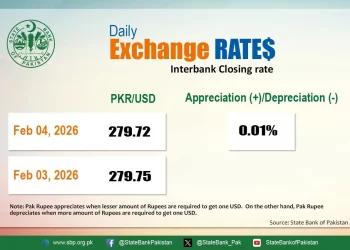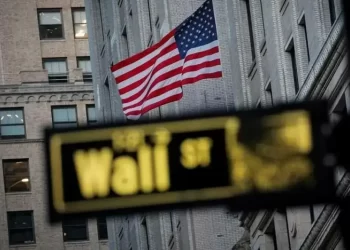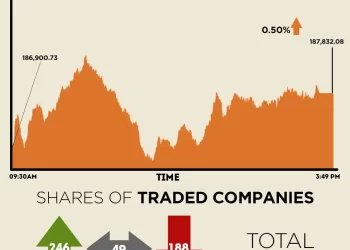The KSE-100 Index was able to recover around a 1,300-point loss it had suffered after the Supreme Court’s verdict on reserved seats as the index closed the session nearly flat on Friday.
The benchmark index started the session positive, hitting an intra-day high of 80,321.69 in the opening few hours.
However, the index saw strong selling pressure after the SC announced its verdict on the reserved seats, followed by a late-session buying spree that helped the KSE-100 finish about where it had started.
At close, the benchmark index settled at 79,944.10, marginally down by 48.26 points or 0.06%.
“Volatile session was observed today, where the index at one point declined by 1,380 or -1.73% after Supreme Court decision announced its verdict in reserved seats case in favor of PTI,” brokerage house Topline Securities said in its post-market report.
“However, recovery was observed during the latter hours of trade as investors factored in that PML-N ruling collation still has 62% representation in National Assembly,” it added.
Major positive contribution to the index came from HUBC, OGDC, FFC, PSO and BAHL, as they cumulatively contributed 384 points; whereas HBL, FFBL, EFERT, SRVI and BAFL lost value to weigh down on the index by 415 points, Topline said.
On week-on-week basis, KSE-100 declined slightly by 0.34%.
“This decline can be attributed to profit taking around the psychological 80,000 index level as investors await the $6-billion EFF deal with the IMF,” the brokerage house added.
The negative sentiment on Friday had come after the SC declared on former Prime Minister Imran Khan’s Pakistan Tehreek-e-Insaf (PTI) party eligible for seats reserved for women and minorities, throwing a spanner in the working of the current National Assembly where the PML-N-led coalition government had a two-thirds majority.
With some seats now going away, the coalition government’s grip in workings of the federal government is likely to loosen. This stoked fear that the economic agenda could be put on the backburner, and possibly also slow down the reforms’ process.
However, some analysts said it was too early to tell the future course of reforms and the IMF programme.









